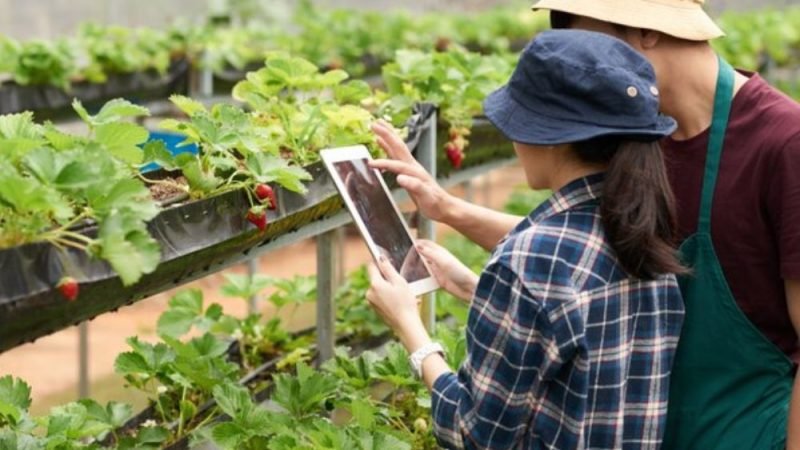- +91-9310656578
- info@loveandactionfoundation.com.

The Future of Sustainable Agriculture: Innovations and Best Practices
As the global population continues to grow and climate change accelerates, the need for sustainable agricultural practices has never been more urgent. Sustainable agriculture focuses on meeting the food needs of the present without compromising the ability of future generations to meet their own needs. By integrating innovative technologies and best practices, the future of agriculture promises to be more efficient, resilient, and environmentally friendly.
1. The Rise of Precision Agriculture
Precision agriculture is revolutionizing farming by using technology to monitor and manage crops more efficiently. Through tools like GPS, remote sensing, and data analytics, farmers can make more informed decisions about planting, watering, and fertilizing. This approach minimizes waste and reduces environmental impact by applying resources only where and when they are needed. Technologies such as drone surveillance and soil sensors provide real-time data, allowing for targeted interventions that enhance productivity and sustainability.
2. The Role of Artificial Intelligence and Machine Learning
Artificial Intelligence (AI) and machine learning are transforming agricultural practices by enabling smarter decision-making. AI algorithms can analyze vast amounts of data to predict crop yields, detect plant diseases early, and optimize resource use. For example, AI-driven systems can analyze satellite images to identify crop health issues and recommend precise treatments, thereby reducing the need for broad-spectrum pesticides and fertilizers.
3. Advancements in Soil Health Management
Soil health is fundamental to sustainable agriculture. Innovations in soil management include the use of cover crops and crop rotation to improve soil fertility and structure. Additionally, biochar and compost are being utilized to enhance soil organic matter and nutrient content. Modern soil-testing technologies help farmers understand their soil’s needs and tailor their practices to maintain soil health and productivity over the long term.
4. Water Efficiency and Conservation Techniques
Water scarcity is a significant concern for agriculture, making water-efficient practices crucial. Techniques such as drip irrigation and rainwater harvesting are becoming more prevalent. Drip irrigation delivers water directly to the plant roots, minimizing evaporation and runoff. Rainwater harvesting systems collect and store rainwater for use during dry periods. Additionally, soil moisture sensors help farmers monitor and manage water use more effectively.
5. Integrating Agroforestry Practices
Agroforestry, the integration of trees and shrubs into agricultural landscapes, offers multiple benefits. Trees improve soil health, enhance biodiversity, and provide shade that can reduce crop stress. Agroforestry practices also contribute to carbon sequestration, helping to mitigate climate change. By incorporating trees into their farming systems, farmers can create more resilient and productive agricultural environments.
6. Adoption of Vertical Farming and Urban Agriculture
Vertical farming and urban agriculture represent innovative solutions to the challenge of feeding growing urban populations. Vertical farms use stacked layers to grow crops in controlled environments, optimizing space and resource use. Urban agriculture involves growing food in city environments, which can reduce transportation emissions and provide fresh produce to local communities. Both approaches can contribute to more sustainable food systems by reducing the distance food travels from farm to table.
7. Advances in Crop Genetic Engineering
Crop genetic engineering holds promise for enhancing the sustainability of agriculture. Advances in genome editing techniques, such as CRISPR, allow scientists to develop crops that are more resistant to pests, diseases, and extreme weather conditions. These innovations can lead to higher yields and reduced reliance on chemical inputs, contributing to more sustainable farming practices.
8. Promoting Sustainable Livestock Management
Sustainable livestock management practices are essential for reducing the environmental impact of animal agriculture. Techniques such as rotational grazing, manure management, and feed optimization can improve soil health, reduce greenhouse gas emissions, and enhance animal welfare. Additionally, innovations in alternative proteins, such as plant-based and lab-grown meats, offer potential solutions to reduce the reliance on traditional livestock farming.
9. Enhancing Supply Chain Transparency
Sustainable agriculture extends beyond the farm to include the entire supply chain. Blockchain technology and other digital tools are being used to enhance supply chain transparency, traceability, and accountability. By tracking the journey of food from farm to table, consumers can make more informed choices, and farmers can ensure that their sustainable practices are recognized and valued.
10. Encouraging Community and Collaborative Efforts
Finally, the future of sustainable agriculture will be shaped by community and collaborative efforts. Farmers, researchers, policymakers, and consumers must work together to share knowledge, resources, and best practices. Collaborative projects, such as community-supported agriculture (CSA) programs and farmer cooperatives, can foster innovation and support the adoption of sustainable practices on a broader scale.
Conclusion
The future of sustainable agriculture is bright with the promise of innovations and best practices that address the challenges of our time. By embracing precision agriculture, leveraging advanced technologies, and adopting environmentally friendly practices, we can build a more resilient and sustainable food system. As we move forward, it is essential to continue investing in research, fostering collaboration, and supporting farmers in their journey towards sustainability. Together, we can cultivate a future where agriculture thrives in harmony with the environment.
For more insights on sustainable agriculture and to learn how you can support these initiatives, visit our website or contact us directly. Let’s work together to create a more sustainable and prosperous future for agriculture.
At Love & Action Foundation, we are dedicated to uplifting individuals and communities through compassionate support and effective action. Our mission focuses on addressing poverty, restoring dignity, and fostering lasting change.
Copyright © 2024 Love & Action Foundation | All Right Reserved. Developed by Invoidea
Love & Action Foundation
ABC BAnk LTD
Delhi India
Kamaryut 11041, Yangon, Myanmar
1200000000000000